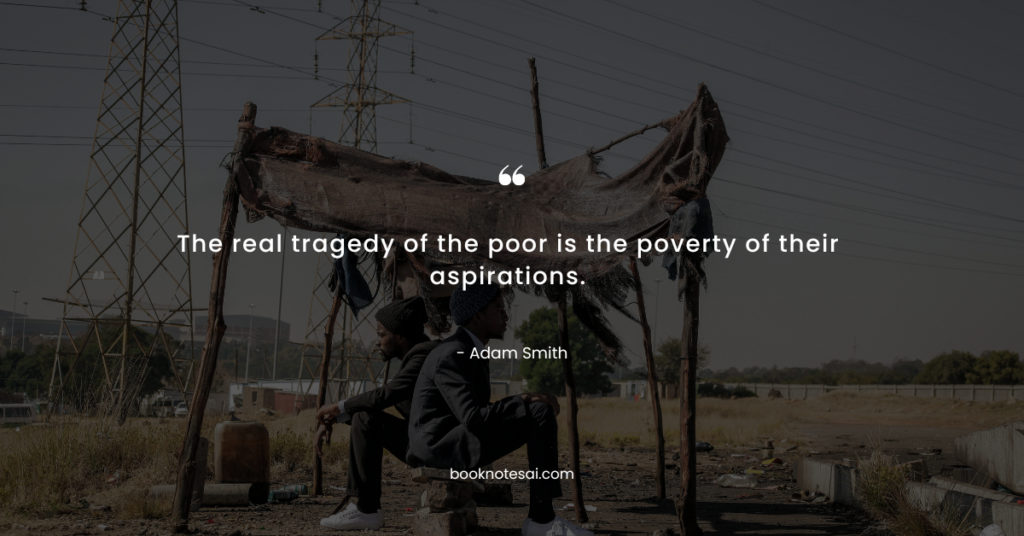Listen To This Post
The Wealth of Nations Summary: An Inquiry into the Nature and Causes of the Wealth of Nations.

This is a book summary for The Wealth of Nations by Adam Smith. The key facts are organized to be easy to use, clear, and very valuable, all while helping you save loads of time.
Introduction: Why this book?
- In The Wealth of Nations, Adam Smith delves into the fundamental principles of economics, exploring the intricacies of wealth creation and distribution. Understanding this book is essential for grasping the foundations of modern economics and how societies generate prosperity.
- By immersing yourself in The Wealth of Nations, you gain insight into the dynamics of free markets, division of labor, and the role of government in economic affairs, empowering you to navigate today’s complex economic landscape with clarity and foresight.
The Wealth of Nations Summary:
- This book is a seminal work in economics, advocating for free-market principles and the invisible hand of self-interest guiding economic activity.
- Smith argues that the division of labor increases productivity and efficiency within an economy, leading to overall prosperity.
- He emphasizes the importance of competition in regulating markets and preventing the exploitation of consumers.
- Smith critiques mercantilism, advocating for policies that promote free trade and unrestricted commerce among nations.
- The book explores various economic phenomena, from the role of wages to the significance of capital accumulation, providing a comprehensive understanding of economic principles.
💡 5 Big Ideas
- Invisible Hand and Market Forces: Smith introduces the concept of the “invisible hand,” where individual self-interest in a free market ultimately benefits society as a whole.
This idea underscores the importance of allowing market forces to operate naturally, fostering innovation and efficiency.
Implementing this idea in real life involves trusting in the decentralized nature of markets and minimizing government intervention to allow for optimal resource allocation and economic growth. - Division of Labor: Smith highlights the advantages of dividing labor tasks to increase productivity and output. He suggests that specialization leads to higher efficiency and proficiency in specific tasks.
In practical terms, individuals and businesses can leverage the division of labor by focusing on their core competencies and collaborating with others to streamline production processes. - Free Trade and Comparative Advantage: The author advocates for free trade among nations, arguing that it allows countries to specialize in industries where they have a comparative advantage.
By engaging in international trade, nations can maximize overall welfare and benefit from a broader array of goods and services.
Understanding comparative advantage can guide policymakers and businesses in making informed decisions about trade policies and market participation. - Role of Government: Smith proposes a limited role for government in economic affairs, emphasizing the importance of maintaining law and order, enforcing contracts, and providing public goods.
Excessive government intervention, according to Smith, can distort market mechanisms and hinder economic progress.
This idea underscores the need for balanced regulation that promotes competition and safeguards individual rights. - Wealth and Virtue: Smith explores the relationship between economic prosperity and moral character, suggesting that wealth accumulation should align with ethical principles.
He argues that wealth serves as a means to achieve greater happiness and societal well-being when acquired through virtuous means.
This perspective encourages individuals to pursue economic success while upholding integrity and social responsibility.
In summary, The Wealth of Nations illuminates the intricate workings of economies and offers timeless insights into wealth creation, market dynamics, and the role of government.
By embracing its core principles, you gain a deeper understanding of economic systems and how they shape our world.
Powerful Quotes
- “It is not from the benevolence of the butcher, the brewer, or the baker that we expect our dinner, but from their regard to their own interest.”
This quote highlights how self-interest drives economic transactions, emphasizing the importance of individual motivations in market interactions. - “The real tragedy of the poor is the poverty of their aspirations.”
This quote encourages individuals to aspire for greater economic opportunities and challenges the notion of resigned acceptance of poverty. - “No society can surely be flourishing and happy, of which the far greater part of the members are poor and miserable.”
Smith emphasizes the importance of widespread prosperity for societal well-being, highlighting the interconnectedness of individual and collective prosperity. - “The propensity to truck, barter and exchange one thing for another is common to all men, and to be found in no other race of animals.”
This quote underscores the universality of economic exchange among human societies, illustrating the inherent human inclination toward commerce and trade. - “Labor was the first price, the original purchase-money that was paid for all things.”
Smith emphasizes the foundational role of labor in economic transactions, highlighting its significance in the production and exchange of goods and services. - “With the greater part of rich people, the chief enjoyment of riches consists in the parade of riches, which in their eye is never so complete as when they appear to possess those decisive marks of opulence which nobody can possess but themselves.”
This quote sheds light on the pursuit of conspicuous consumption among the wealthy, revealing how social status influences patterns of consumption and expenditure. - “Man is an animal that makes bargains: no other animal does this – no dog exchanges bones with another.”
Smith explores the unique human capacity for economic exchange, distinguishing human behavior from that of other animals. - “All money is a matter of belief.”
This quote underscores the importance of trust and confidence in monetary systems, highlighting the subjective nature of money as a medium of exchange. - “The real and effectual discipline which is exercised over a workman is that of his customers. It is the fear of losing their employment which restrains his frauds and corrects his negligence.”
Smith emphasizes the disciplinary role of market forces in regulating worker behavior, illustrating how competition incentivizes quality and efficiency. - “Civil government, so far as it is instituted for the security of property, is in reality instituted for the defense of the rich against the poor, or of those who have some property against those who have none at all.”
This quote critiques the role of government in protecting property rights, highlighting the inherent tensions between different socioeconomic classes.
One Reason To Read This Book:
For anyone seeking to understand the fundamental principles that govern economic systems and shape societies, The Wealth of Nations provides invaluable insights and timeless wisdom.
Who should I recommend The Wealth of Nations summary to?
If you’re curious about economics, business, or political science, regardless of your age or professional background, exploring The Wealth of Nations summary can offer you a fascinating glimpse into the intricate workings of economic systems and their impact on society.
Recommendations:
- “Capital in the Twenty-First Century” by Thomas Piketty: This book offers a contemporary analysis of wealth inequality and economic trends in the modern era.
- “Freakonomics: A Rogue Economist Explores the Hidden Side of Everything” by Steven D. Levitt and Stephen J. Dubner: This book delves into unconventional economic principles and explores the unexpected forces that shape our behavior and decisions.
This summary serves as a complimentary guide to the reviewed title The Wealth of Nations, offering key insights. For a deeper understanding, we encourage you to explore the full book.


